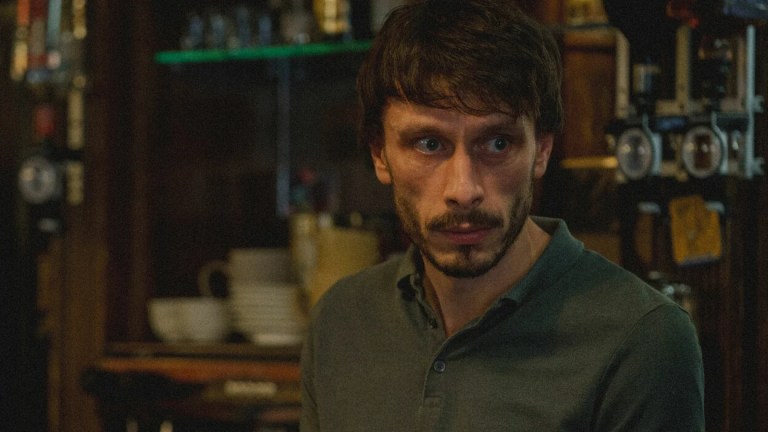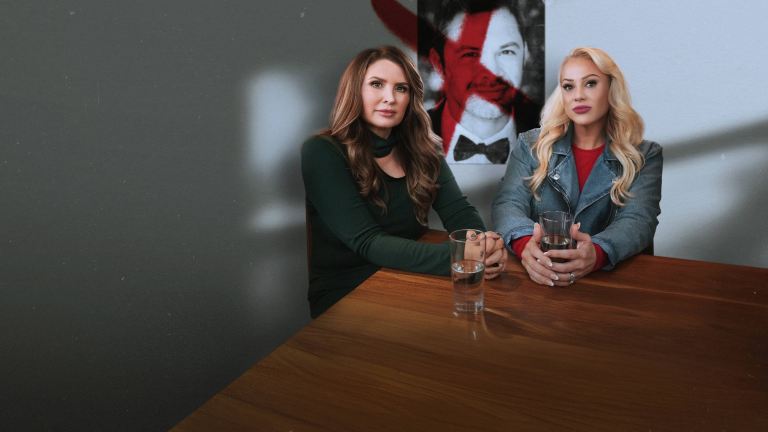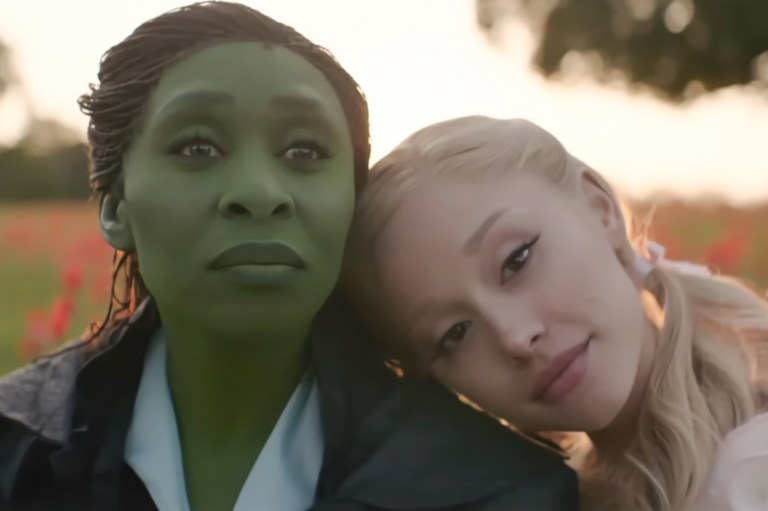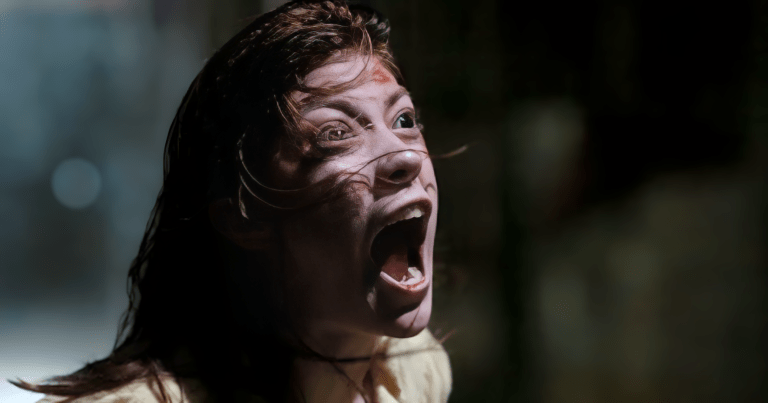
Is ‘Baby Reindeer’ Anti-Feminist?
There's no denying that Baby Reindeer is masterful, but is it anti-feminist at the same time?
By ![]() Jamie Lerner
Jamie Lerner
Stand-up comedian Richard Gadd took the world by storm with his debut Netflix series, Baby Reindeer, which was clearly far more successful than his debut Edinburgh Fringe show (as depicted in the series). Richard plays a version of himself named Donny, an aspiring stand-up comedian who works in a London pub. Baby Reindeer tells the true story of Richard’s experience with his stalker.
The hook of Baby Reindeer is the intensity and uniqueness of his story as the victim of a female stalker named Martha, whose real-life identity we know but won’t share out of respect to her. Each of the seven episodes dives into how Donny allows Martha into his life, how she began stalking him, and how that grew into an obsession, not just for Martha, but also for Donny. And while Martha is painted as the villain of Baby Reindeer, the true villain is a man in the entertainment industry, Darrien, whose real-life identity we may never learn because of the power he holds.
Darrien takes advantage of Donny’s vulnerability as a failing comedian and takes him under his wing. He earns Donny’s trust until he’s able to get Donny alone in his home, get him high, and sexually assault him multiple times. Donny is painted as a willing victim of sexual assault, who returns to the home of his abuser for the promise of money or fame, a promise he knows may never be fulfilled. And yet, many viewers have fixated on Martha instead.
If ‘Baby Reindeer’ followed a female victim, the world may have had a different reaction.
The world and Baby Reindeer’s creators are seemingly just as obsessed with Martha’s story as she was with Donny. But if we reversed the gender roles, if the story had followed a woman stalked by a man, would we have the same reaction? Women are stalked (and sexually assaulted) every day, and rarely does a story about it go as viral as Baby Reindeer.

Perhaps that’s due to the quality of Baby Reindeer, as well as Donny’s perspective. He thinks his “empathy” allows him to let Martha into his life. But upon further examination, his desperate need for attention, validation, and the love that he was so starved of after dealing with his abuser created the space for her. On the other hand, how often have stories been told from this perspective about women being stalked?
According to the National Stalking Helpline, over 75% of victims of stalking are women, whereas less than 25% are male. 1 in 5 women will be stalked in their lifetime, while 1 in 10 men will be stalked. Perhaps the anomaly of Richard’s story is what led to the world’s infatuation with Baby Reindeer, but that doesn’t mean we should place less importance on the stories of female victims.
When we think of true crime reenactment series with female victims at the center, women are often portrayed as the “girl who lit up a room,” a simple victim of the patriarchy, and a damsel in distress with little agency of her own. In Richard’s story, he has agency, but he doesn’t have the emotional capacity to deal with it in a productive way, hence often blaming himself for the situation he was in.
In all honesty, I don’t think Netflix would have told his story if he were a woman. The way he talks about himself can be conflated with “victim blaming,” which Netflix would expect viewers to dismiss and criticize with a woman at its center. But female victims do blame themselves; yet in the stories told about them, we’re more often forced to engage with the grit and lure of the perpetrator rather than the victim’s reckoning with her situation.
Even when I searched for series about female victims of stalking, the only results that populated were about Baby Reindeer. Perhaps that’s due to a flaw in Google’s algorithm, but it could also be because there is simply no story popular enough about a female victim of a crime that disproportionately affects women.
The main draw of ‘Baby Reindeer’ is the “monstrous woman.”
Add to that the fact that the central draw of Baby Reindeer is the “crazy woman.” According to Richard, the real-life Martha sent him 41,071 emails, 744 tweets, and 350 hours of voicemails. This is certainly abusive and harrowing behavior, but for some reason, society seems infatuated with this caricature of the “crazy woman.”
How many times have you heard a man call his ex “crazy”? Of course, it’s warranted for Donny to call Martha “mentally unwell,” but in doing so, it continues to drive the narrative that women are “crazy.” The Conversation reiterates our “fascination” with “monstrous women,” a description Martha seems to fit.
“It’s also perhaps dispiriting that we accommodate male offending into our expectations of masculinity,” they share. “In doing so we perceive male offenders to be independent, rational, autonomous and responsible. In contrast, and as is the case with Martha, women offenders are viewed as dependent, emotional, irresponsible and not entirely adult.” Baby Reindeer’s handling of its two villains—Darrien and Martha—perpetuate these stereotypes.

In fact, Richard and Netflix’s approach to Baby Reindeer’s popularity did actual damage to the real-life Martha. By throwing a woman under the bus and using her story to fuel the marketing machine, Baby Reindeer actively hurt a woman. Does the combination of perpetuating stereotypes, focusing on a male victim, and hurting a woman make Baby Reindeer anti-feminist?
‘Baby Reindeer’ is more feminist than it seems to be.
In actuality, Baby Reindeer may not focus on a female victim, but it does shed light on a problem many women face. Some might argue that based on everything I’ve said, Baby Reindeer is anti-feminist. But I need to argue against myself here because Baby Reindeer isn’t about women. However, it is about gender and sexual violence, both of which are issues women (more often than not) are forced to deal with.
As Donny reckons with his sexuality and his perceived loss of masculinity, Martha’s heterosexual infatuation with him drives the confused part of his brain to accept her. In a way, Baby Reindeer digs deeper into these issues than the surface level of saying “women are crazy.” It says instead that the definitions of men and women prescribed by society are incorrect—we often need to see the nuances in gender and sexuality to empathize with and understand trauma.
That idea in itself is innately feminist. Feminism is about equality of the genders and supporting those who are disenfranchised because of their gender. In addition, anyone can be a victim of the patriarchy, including men, as seen in Donny’s relationship with Darrien. When men hold power in an industry and in the world, they can assert “masculinity” over anyone, regardless of the victim’s gender. And Richard’s bravery in sharing his story of sexual assault, which can be painted as emasculating, along with his exploration of gender and sexuality, is what makes Baby Reindeer more feminist than it may seem to be on the surface.











